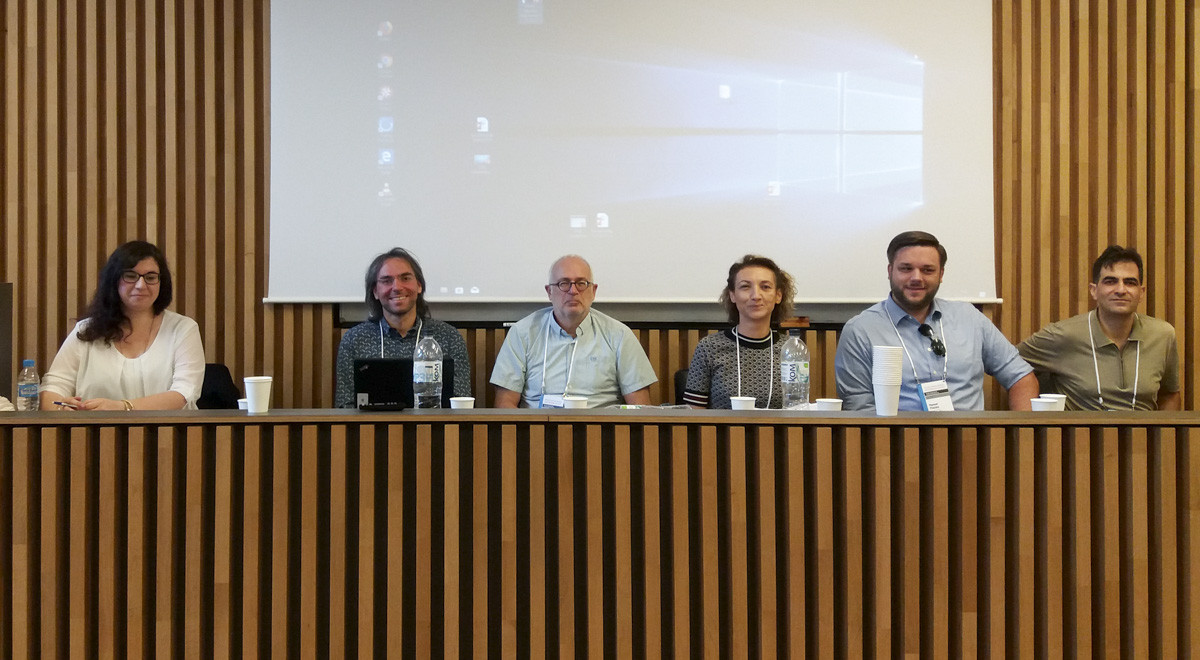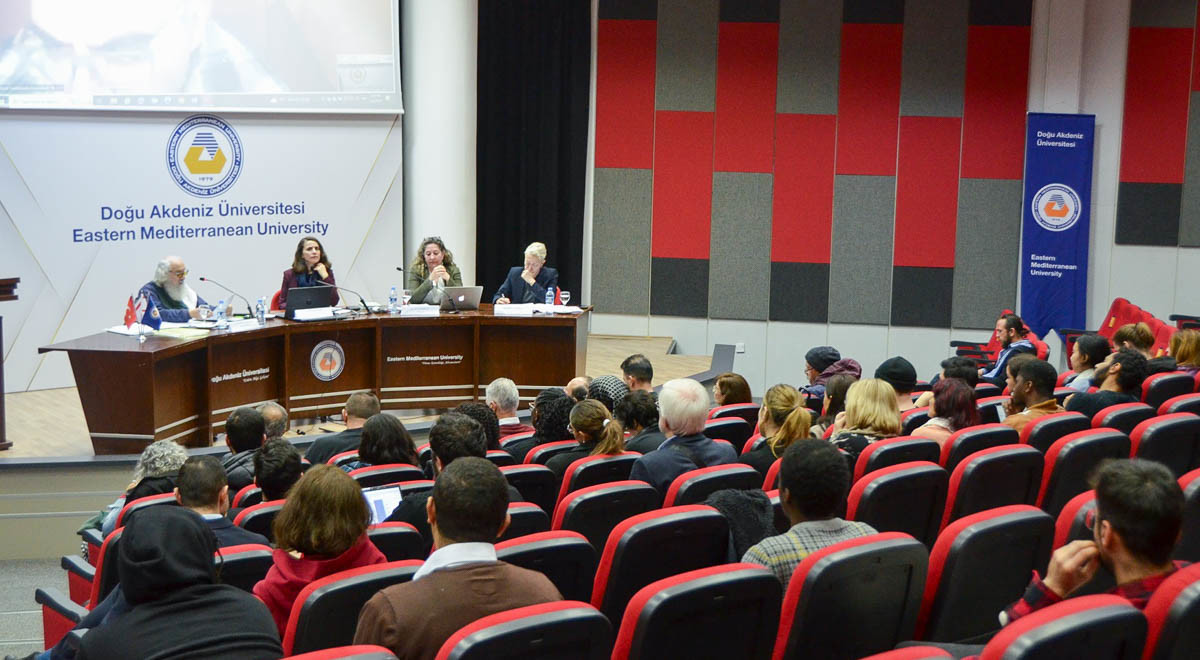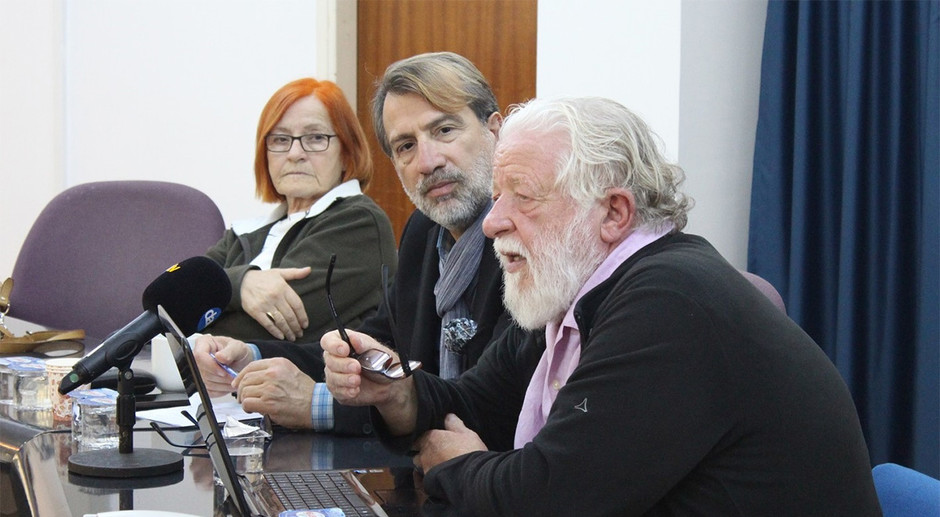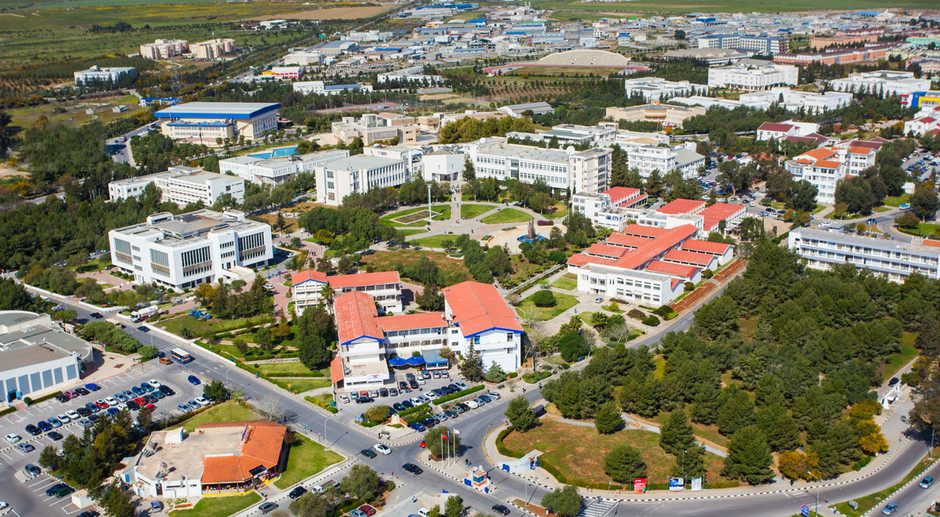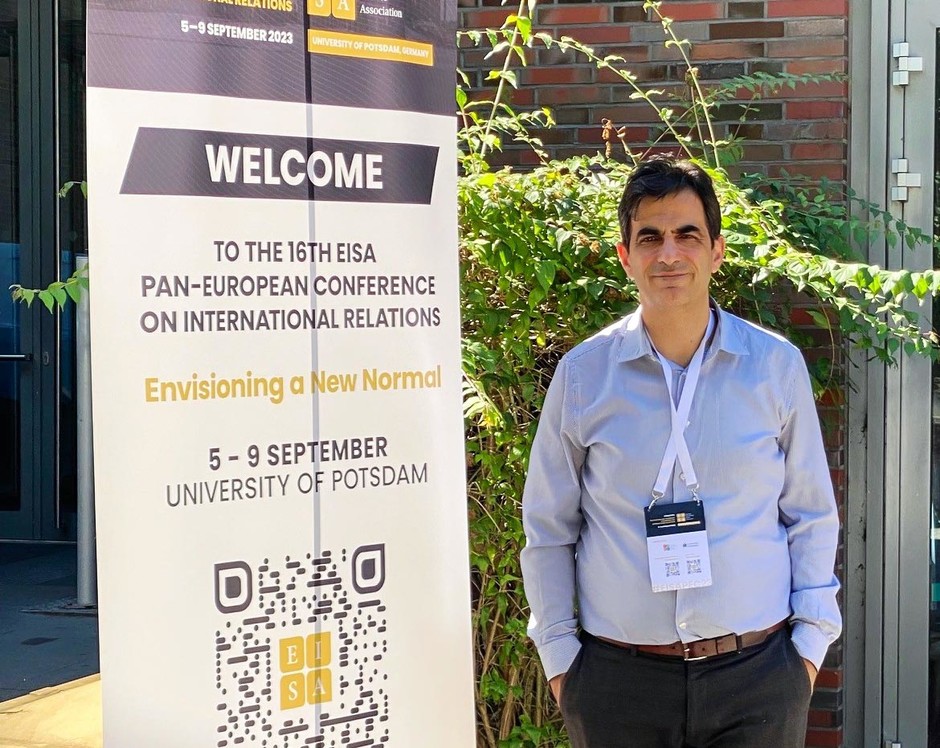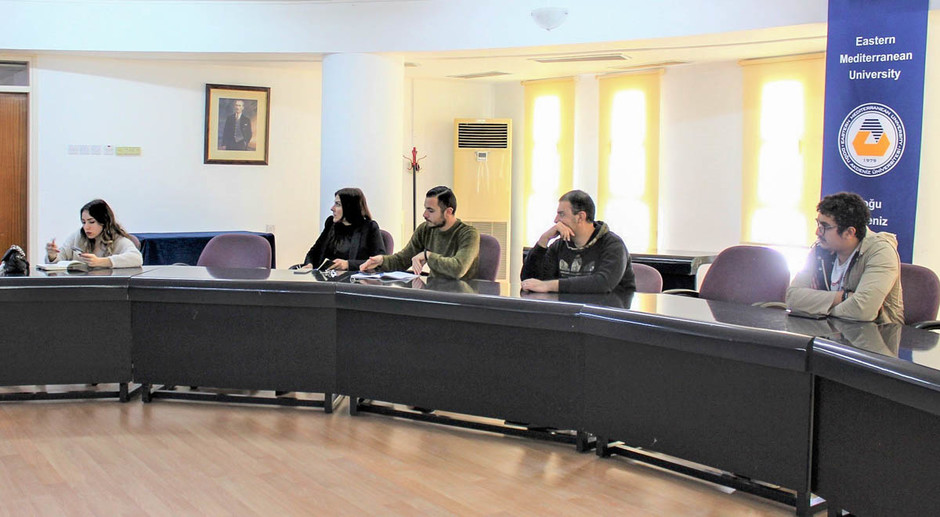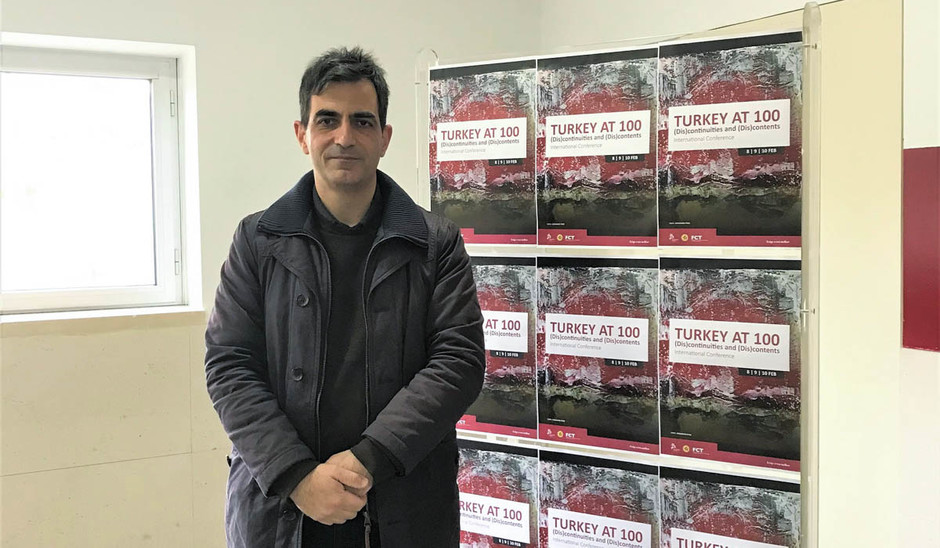Eastern Mediterranean University Cyprus Policy Centre (EMU-CPC) Research Assistant Devrim Şahin participated in the 13th Pan-European Conference on International Relations. The theme of this year’s conference was “A Century of Show and Tell: The Seen and the Unseen of International Relations.” At the conference, Şahin delivered presentations on the work he carried out with EMU Department of Political Science and International Relations Chair / EMU-CPC President Prof. Dr. Ahmet Sözen. The conference which took place between the 10th and 14th of September 2019 at Sofia University was organized by the European International Studies Association (EISA). The conference lasted for a period of four days and featured numerous panels, round-table meetings and workshops attended by academicians and students from all over the world.
Comparing the Past and Present
Relations between the East and West were discussed at during the presentation of Şahin and Prof. Dr. Sözen's article titled “Time for a Nahost-Politik: EU’s Need for a Strategic Vision Based Policy towards Turkey”. This article was presented at the panel titled “Between the East and the West: The Image of Europe from Outside”. Şahin argued that with tactical approaches similar to those which led to the downfall of the Athenian Democracy and the Roman Empire politics such as a readmission agreement between the EU and Turkey and the proposition of a special statute won’t have useful long-term outcomes. Instead of these approaches, Şahin emphasized the need for strategies with a vision of transforming Turkey’s dynamics in a peaceful and democratic manner.
“Chaos and Order in World Politics”
During another panel, Şahin presented the article “Revolutionary chaotic peace: Reinforcing the peaceful global metamorphosis” which was written with Prof. Dr. Sözen also. Şahin argued that there has been a revolutionary structural metamorphosis in the system of international relations since World War 2. Şahin stated that the international system isn’t anarchical and lacking a central authority as often perceived by the traditional perspective but more of a chaotic structure with complex interconnected dynamics. Şahin provided weather as an example of a chaotic system. Stating that many dynamics such as humidity, air pressure and temperature operate without being dependant on a central system, Şahin underlined that the slightest change in one of these conditions can lead to large hurricanes somewhere else in the world.
Şahin stated that the main currents such as realism and liberalism or critical approaches such as Marxism, feminism and structuralism overlook this structural metamorphosis in the international system and concluded by indicating that a consciousness must be formed for states to show constructive behaviour, good will and courage in order for a more healthy international relations system to be created.

